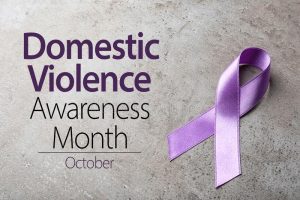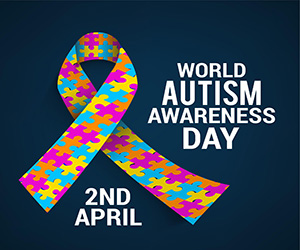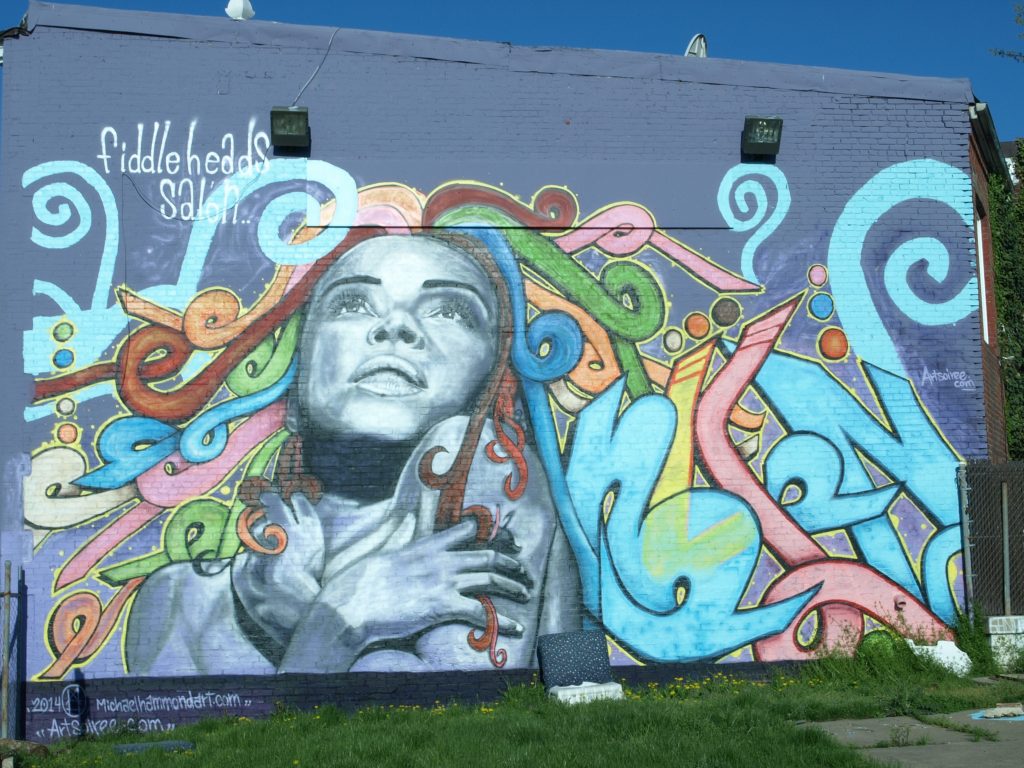
Domestic Violence Awareness Month
October has been proclaimed Domestic Violence (DV) Awareness Month. In 1989, Congress passed Public Law 101-112, officially designating October of that year as National Domestic Violence Awareness Month. Such legislation has been passed each year since.
All Americans deserve a life free from the threat of physical and psychological harm. For many, home is a place of love, warmth, and comfort. Unfortunately, far too many Americans are deprived of this right by perpetrators of domestic violence. Domestic violence and everyday terrorism, tear families apart with devastating consequences that can last for generations. Tragically, more than 10 million Americans suffer at the hands of loved ones each year, and women are twice as likely to be targets of this heinous crime as men. No one is immune to experiencing domestic violence. Domestic violence is a treacherous problem that affects communities large and small across the entire nation. Domestic violence affects young, old, affluent, and underprivileged alike.
What we Know:

Domestic Violence in the District of Columbia 2017 Statistical Snapshot
- During their lifetime, 50% of women living in D.C. have experienced psychological aggression perpetrated by an intimate partner.
- During their lifetime, 39% of women living D.C. have experienced sexual violence, physical violence, and/or stalking perpetrated by an intimate partner
Defining Domestic Violence (DV)
Domestic violence (DV) is defined as a pattern of coercive behavior perpetrated by one family member on another, or by one intimate partner on the other, with the purpose of establishing and maintaining power and control.
Types of Abuse
Psychological Abuse
- Verbal Abuse: Name-calling, insults, condescension, etc
- Coercive Control: Controlling daily activities
- Emotional Abuse: Destroying self-esteem, manipulation
- Intimidation Tactics: Stalking. Threats, displaying weapons
Economic Abuse
- Encourages financial dependence
- Engages in financially aggressive behavior
- Exploits the victimized partners for profit
Sexual Abuse
- Unwanted sexual activities – this is Rape
- Withholding sex – criticizing performance
- Objectifying – Treating partner’s body like a sex object
Physical Abuse
- Compromising health – Denying food, sleep healthcare
Battery
- Injuries requiring medical attention and those that may not
- Pregnancy battering – kicking in the abdomen
- Attacking with a weapon
Murder
- Revenge for leaving the relationship.
In an article Recognizing the Signs of Domestic Violence written by World Psychologist Donna M. White, abusers commonly use tactics to gain control over their victims. Abusers often may try to make their partner feel bad or “less than.” This tactic is used to make their partners stay. By engaging in behavior such as insulting, name-calling or other forms of humiliation, the abuser is able to diminish self-worth. Many victims start to believe the negativity and begin to feel they do not deserve anything else and no one else would want them.” Other signs include, unhealthy jealousy, possessiveness, and isolation from family and friends.
Domestic Violence Can Happen to Anyone
Domestic violence can happen to anyone, even if the abuse doesn’t happen all the time. The violence gets worse in a relationship over time. Unfortunately, individuals don’t always know when they are in an abusive relationship, and when they do, leaving isn’t as easy as people think it is. A person can be highly educated and successful, yet at some point, when they are perhaps so in love, realize something is wrong. In an interview with Huffington Post in 2016, singer, songwriter Michel’le spoke about being in an abusive relationship with Dr. Dre, and shared “When you’re living in it, you can’t see it. But I couldn’t believe that I was really living like that.” Award winning singer, actress, dancer, producer and fashion designer Jennifer Lopez reported she had an abusive relationship with Marc Anthony revealing “I’ve never gotten a black eye or a busted lip, but I’ve felt abused in one way or another: mentally, emotionally, and verbally. I know what it feels like for your soul to be diminished by the way your loved one is treating you.” Oscar winner Halle Berry opened up about her abuse reporting that she was in a very physically abusive relationship where she was punched so hard that she lost about 80% of hearing her ear. You can also add singer and entertainer Rihanna to the list that goes on and on. Note, not everyone leaves or survive their abuse.
Those in an abusive relationship will stay with their partner for a number of reasons:
- Their self-esteem is totally destroyed
- The cycle of abuse, meaning the ‘honeymoon phase’ that follows physical and mental abuse, makes them believe their partner really is sorry, and does love them.
- It’s dangerous to leave. Women are 70 times more likely to be killed in the weeks after leaving their abusive partner than at any other time in the relationship, according to the Domestic Violence Intervention program.
- Statistics suggest that almost 5 percent of male homicide victims each year are killed by an intimate partner.
- They feel personally responsible for their partner, or their own behavior. They are made to feel like everything that goes wrong is their fault.
- They share a life. Marriages, children, homes, pets, and finances are a big reason victims of abuse feel they can’t leave.
A Survivor’s Story
The situations highlighted in this article came to life while I worked as a volunteer at DC Coalition Against Domestic Violence for women. During that time, domestic violence was prevalent in DC. I decided to investigate and take a deeper dive into information about domestic violence, abusers, the abused and survivors. I started looking for a strong advocate for victims of domestic violence and had the pleasure of interviewing Tenickia Polk, Author, Pastor, Survivor and Advocate for Domestic Violence.
Here is an excerpt from that interview:

Polk shared that she was in a marriage where she experienced mental, emotional, financial, sexual, and physical abuse. She was married for at least two years prior to the abuse. Polk’s husband demanded attention, intimacy, and deprived her of sleep, He didn’t want her to succeed in her career. Polk suffered from stomach problems, heart problems, and lupus discoid that flared up all the time due to the stress of her marriage. She said their first argument turned physical about two years into the marriage and she didn’t see any signs because they rarely argued. “I experienced multiple miscarriages which I believe was due to the stress of the marriage.”
How did Polk overcome domestic violence? “I overcame domestic violence, the conditions, and more by applying Biblical principles to my life, like falling out of agreement with spirits of self-hatred, guilt, fear, and more. Self-hatred and fear are the big ones though. I’ve come a long way, said Polk. She strongly encourages loving yourself and establishing a closer relationship with God. Her healing was a result of Mathew 22:39. “And the second is like, unto it, Thou shalt love thy neighbour as thyself.” This means God wants me to love myself before I can love anyone else. Loving myself includes not subjecting myself to abuse”said Polk. This is just a snapshot of her story, but similar to so many abused individuals.
Safety Planning
Domestic violence can happen to anyone and leaving an abusive relationship isn’t easy. However, when you feel you are ready, there must be a safety plan. A safety plan is an outline that includes ways to remain safe while in the relationship, planning to leave, or after you leave. If you or someone you know is experiencing domestic violence, please call:
National Domestic Violence Hotline #1.800.799.SAFE (7233) TTY 1-800-787-3224
Know that you are not alone and there is support and caring hearts at your finger tips waiting to assist you.

















Add comment